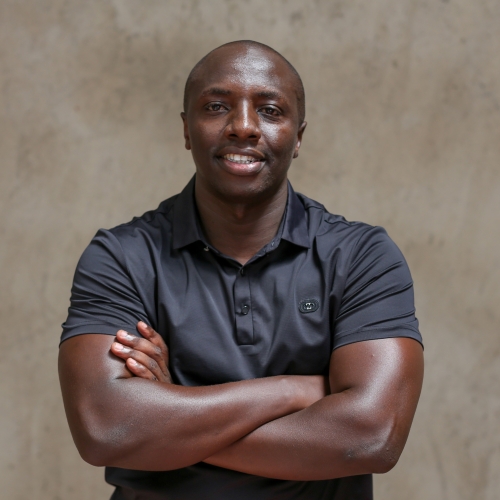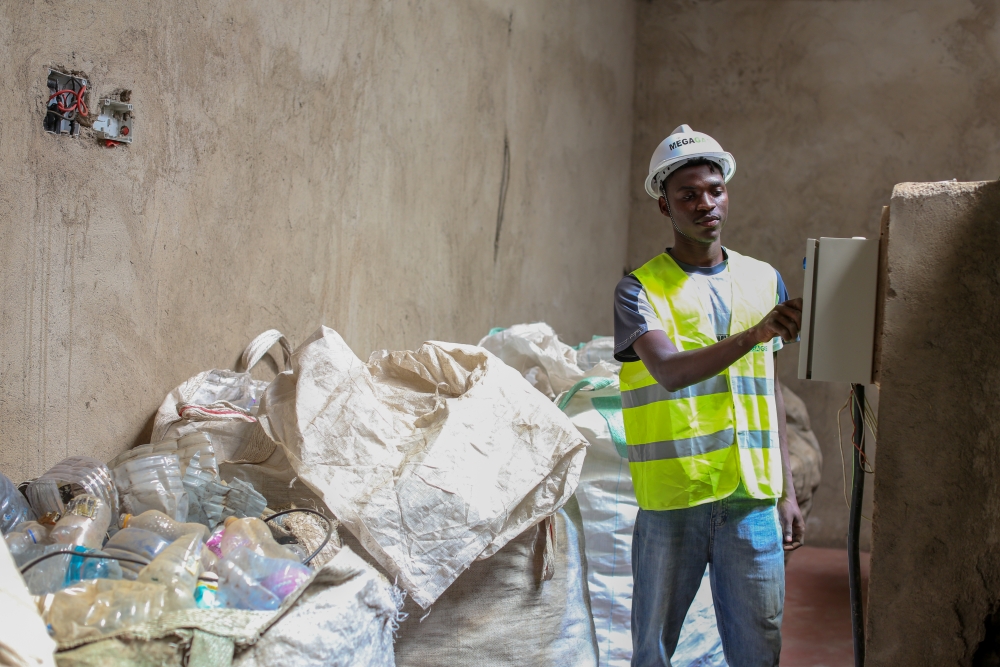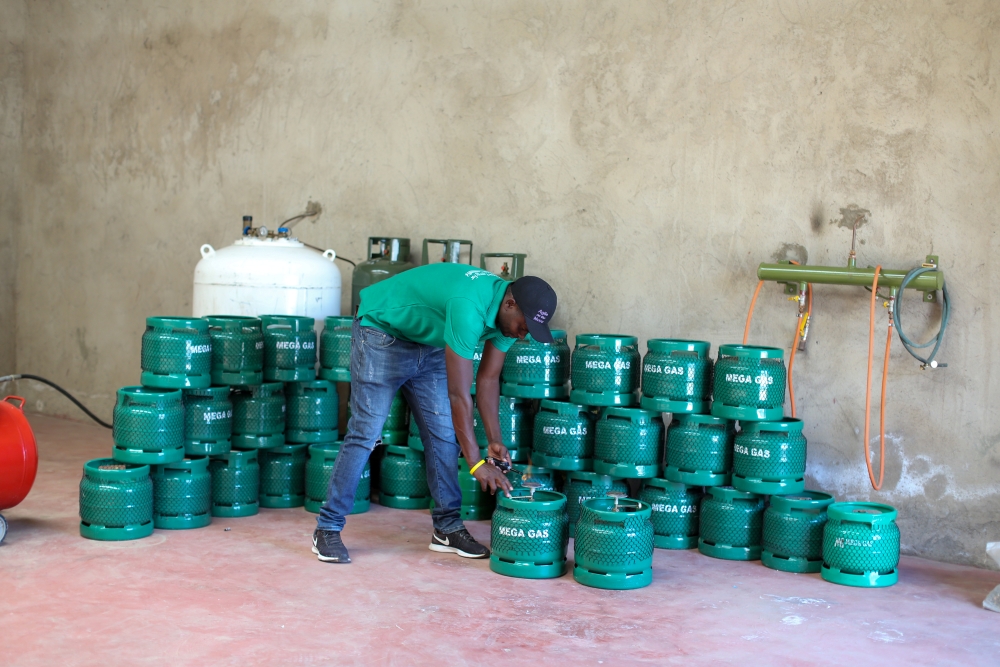Mega Gas, a clean-tech startup in Kenya, is tackling two major crises: plastic waste pollution and unsafe cooking fuels. A team of young engineers founded by Peter Njeri is converting discarded plastic into affordable, clean gas. By providing safe, clean-energy cooking spaces at an affordable cost, Mega Gas is improving health, reducing environmental damage, and creating new economic opportunities for local communities.
Peter’s story
Growing up in Soweto, in Eastlands Nairobi, Kenya, Peter experienced first-hand the daily struggle of finding firewood for cooking. With nine siblings, his mother relied on a jiko stove and smoky, open fire to prepare their meals, over time leading to severe health problems. Every year, 23,000 people in Kenya die from exposure to harmful cooking fuels.
At university, he met a group of like-minded engineers and entrepreneurs who shared his passion for solving Africa’s clean cooking crisis. They saw an opportunity in an unlikely place: plastic waste. With a US$60,000 grant, they built their first plant to convert unsorted polythene plastics into clean, usable gas, giving birth to Mega Gas.
The innovation
Mega Gas have developed a ground-breaking, patented thermal cracking process that, unlike traditional methods produces no residue or pollution, offering an eco-friendly alternative to conventional cooking fuels.
Discarded plastics are collected, shredded, and heated in a reactor for several hours. The distillation and compression process transforms plastic waste into gaseous fuel, which is then filtered, cooled, and stored in metal cylinders for easy distribution. The fuel is then transported to community kitchens – safe, gas-powered cooking spaces where locals can prepare meals for just 30 Kenya Shillings (about 25 US cents) per hour. For many families, this is the first time they have cooked without inhaling toxic fumes. The recycling process is certified by the National Environmental Authority and the cooking gas is certified by the Kenya Bureau of Standards.
Despite the success, changing traditional beliefs has been a challenge. “Some people believe that charcoal makes meat taste better,” Peter explains, “but our kitchens are proving that clean energy doesn’t mean sacrificing flavour.” Another challenge is accessibility – while demand is high, there aren’t yet enough community kitchens to serve everyone.
The team’s vision extends beyond Kenya. They plan to expand into Uganda and Tanzania, where millions still rely on charcoal and firewood as cooking fuels. Working with local governments and NGOs to scale their operations, they aim to make clean cooking accessible and affordable across the continent.
Peter’s journey has been one of persistence. “I first applied for the Africa Prize in 2018. Every year, I kept hearing the same thing –my idea was good, but there were questions about its feasibility. Now, seven years later, I’m one of the 16 shortlistees from across Africa. It just shows that perseverance pays off.”
Making a difference
The impact is undeniable. Each month, over 10,000 customers rely on this cleaner, safer energy source. Women, who traditionally bear the burden of cooking, are now using these kitchens to launch small businesses, selling street food, catering for events, and supplementing their household incomes. “We started this to help families cook safely, but now it’s becoming a tool for economic empowerment,” says Peter.
What began as a small community project has grown into a scalable, life-changing innovation, proving that Africa’s energy crisis can be tackled with ingenuity, resilience, and sustainable solutions. Behind this transformation is a dedicated team of 14 full-time employees, including Margaret Maina (Head of Business Development), Eunice Wangechi (Head of Community Kitchens), Edwin Mulema (CTO), Erick Ochieng (Plastic collection lead) and Fredrick Nyoike (Plant Engineer), supported by 120 part-time workers who help process plastic waste.
LATEST BUSINESS MODEL ITERATION:
Mega Gas has launched a new community kitchen in 2025 dubbed the “Mega Gas Commercial Kitchen”. The Mega Gas Commercial Community Kitchen is a new model designed for microentrepreneurs like food vendors and small caterers. Using clean cooking gas and electric motorbikes, we collect food from vendors, cook it at our renewable energy-powered kitchen, and deliver it back ready for sale. This model reduces energy costs, saves time, and promotes clean energy and mobility, empowering small businesses to grow sustainably. It operates at the intersection of clean energy, clean mobility, and social entrepreneurship.

We started this to help families cook safely, but now it’s becoming a tool for economic empowerment. The Africa Prize has a strong tradition of supporting top innovators across the continent, and we want to be part of this journey to scale our impact and drive meaningful change.


